Google Ads (formally known as Google AdWords) is a great way of generating leads for real estate investors. Regardless of your investment strategy (buy-and-hold, fix-and-flip or wholesaling), you can immensely profit from promoting your business with Google PPC (pay-per-click).
Unfortunately, most real estate investors don’t leverage this advertising option, simply because they believe they don’t have skills and technical knowledge required to manage PPC promotions successfully. The truth, however, is that learning how to promote your real estate investment business with Google Ads is extremely easy.
In this comprehensive guide, I will explain the step-by-step process that you can follow to run conversion-optimized ads on this platform, but first let’s talk about why you should use Google Ads in the first place.
Why should real estate investors use Google Ads PPC?
I have seen that the majority of investors use Facebook ads, but not Google Ads. When compared with Facebook Ads, Google PPC can be more effective and profitable in most cases. Though both the platforms have their own advantages, Google Ads is extremely effective in helping you target people (such as distressed sellers) who are actively looking for your services.
Here are a few other reasons you should leverage Google Ads for your real estate investment business:
Full control with a wide range of bidding strategies
You have full control over how much you want to spend for a lead when you are using Google Ads. There are many different types of bidding strategies you can use. You can manually bid for each keyword you want to target. Alternatively, you can let Google decide the best bids for your target keywords by using the smart bidding feature.
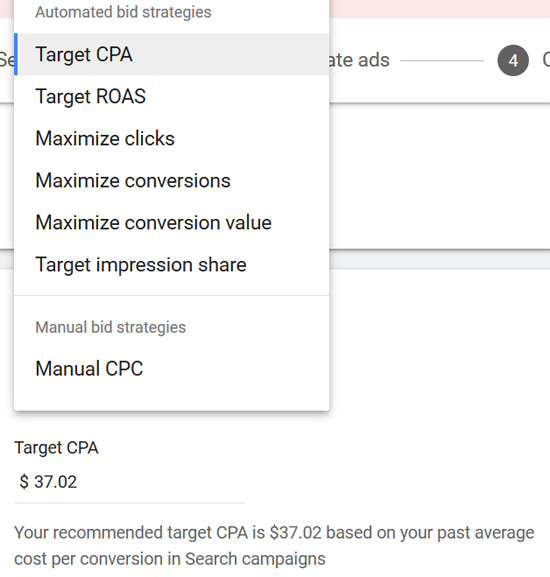
For example, let’s say the average cost-per-click (CPC) for a particular keyword is $5. If your budget doesn’t allow you to spend that much for a click or you feel that the keyword is not important enough, you can use bid adjustment feature of Google Ads. You can tell Google that you don’t want to spend more than $3 per click. In other works, you can determine your Max CPC.
Easy to calculate returns on your advertising dollars
The biggest problem with most advertising platform – online as well as offline – is that it’s extremely difficult to calculate return on your ad spend. This is not the case with Google Ads. The platform provides several metrics to determine your budget, return on ad spend (ROAS), target CPC and conversion value.
![]()
As long as you know your maximum amount of money you are willing to spend for acquiring a new customer (customer antiquation cost or CAC) in a deal, you can use these metrics and determine your budget, ad spend, max CPC and how much you to spend on each conversion.
What it basically means is that you can run an ad with a clear objective of profitability.
Easy to evaluate ad performance
You can evaluate how much you are paying for each keyword and whether or not these keywords are driving any conversions.
After running your Google Ads campaign for a while, you can see which keywords are driving targeted traffic and which aren’t. Based on your analysis, you can increase or decrease bid amount for each keyword.

Automation
Not long ago, you needed to manually bid on keywords. It was a very time consuming and confusing process. Now, Google has launched smart bidding which automates the entire process to a great extent.
Though I prefer manual bidding over automated bidding (because it gives you greater control), smart bidding feature is a great option for real estate investors who are not so tech-savvy and just getting started on this platform.
You don’t waste money on irrelevant traffic
‘Negative keyword match types’ is a great feature of Google Ads. You can label keywords which are driving irrelevant traffic to your landing page as negative keywords. This will prevent Google from showing your ads for search queries which don’t result in conversions.
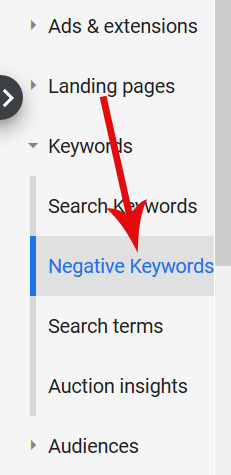
Step-by-step guide to Google Ads for investors
Now that you know the advantages of using Google Ads for your investment business, here is the step-by-step process to follow to get stared with promoting your business on this platform:
Step#1: Know how much you are willing to spend for a conversion
I understand that you are not in a business where predicting profits is easy. When you promote an ecommerce product, you can say with confidence how much your profit margin is going to be, but this is not the case in real estate investing. Many variables go into determining how much you will make including the purpose price, renovation cost and sales price.
However, in order to determine your Max CPC, you must have a fair idea of your profit margin – at least a hypothetical one.
Here is the basic formula to calculate your Max CPC:
Let’s say for example, you expect to make $20,000 in a fix-and-flip deal.
Now the maximum amount of money you want to spend for getting a new customer is $5,000 (customer acquisition cost).
When you start running Google Ads, you realize that your conversion rate is 0.5%. It means that one in every 200 people who filled out the lead form on the landing page you are promoting converts (results in a sale). In order to know your conversion rate, you will need to run the ads for a while and collect a significant amount of leads.
In this example, the max CPC would be .005X5,000 = $25
As shown in the screenshot below, you can use Google Keyword Planner Tool to get an idea of cost per click for your target keywords. For example, ‘we buy houses’ keywords generate 12,000 monthly searches on average and the CPC can be anywhere from $8.61 to $59.99. Similarly, the CPC for keyword ‘sell house fast’ can be anywhere from $12 to $63.
Step#2: Do an in-depth keyword research
Keyword research is one of the most important steps that will make or break your PPC campaign.
Most investors wrongly believe that they know their business, so they can easily guess the best keywords for PPC campaigns. Instead of limiting your Google ads campaigns to keywords such as ‘sell my home fast’, ‘we buy homes’, ‘buy my house for cash’, ‘sell my house for cash’ and ‘cash for houses’, you should try to find keywords which are less competitive and offer best return on your ad spend.
Put yourself in the shoes of your potential clients and try to figure out what types of search queries they would potentially use when buying or selling distressed properties.
- Use Google Keyword Planner tool to get keywords ideas. A free alternative is Ubersuggest.
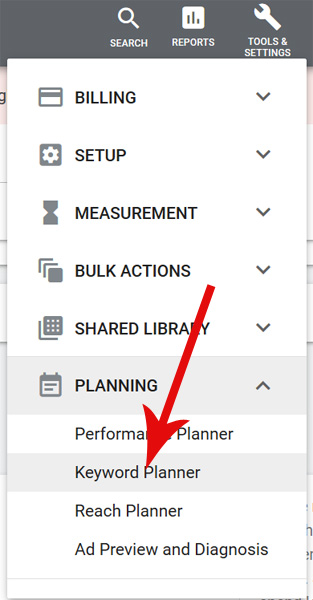
- Go through related searches at the bottom of organic search results
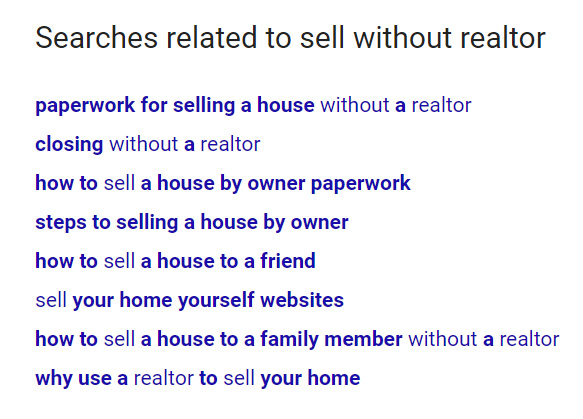
- Go through the websites of your competitors to figure out what keywords they are optimizing their content for
Here at Realty Crux, we use premium SEO tools such as Ahrefs, KWFinder and SEMRush to get keywords ideas and do a competition analysis. Most of them are very expensive, so you can start with the free tools I just mentioned.
Step#3: Be organized when structuring your campaigns
Different elements of Google Ads are controlled at three different levels:
- account,
- campaigns,
- and ad groups.
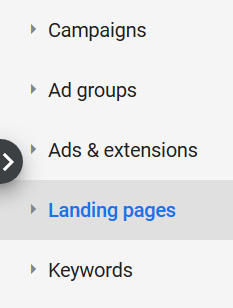
For example, you can control specific elements such as location, max CPC and bidding strategy at campaign level. Your ad copy and keywords are grouped at ad groups level.
Understanding this Google ads hierarchy is extremely important to target the right audience within your budget. There is no one-size-fits-all formula to determine how to organize your Google Ads campaigns – which is why most real estate investors get it wrong.
Step#4: Know which keyword match type to use
There are four different match types in Google Adwords:
- Broad Match,
- Broad Match Modifier,
- Phrase Match
- and Exact Match.
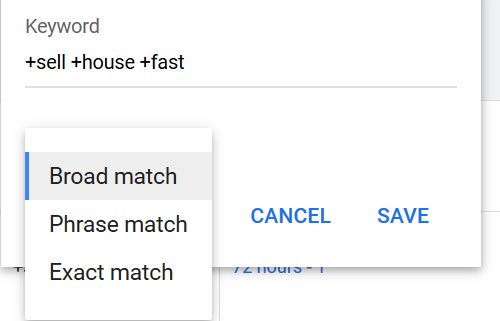
Which keyword match type you should use depends on your budget and advertising goals.
If you are willing to spend money on getting great keyword ideas, you can start with ‘Broad Match’ or ‘Broad Match Modifier’. I would recommend Broad Match Modifier if you are getting started with Google Ads. It helps you get new keyword ideas and gather data about conversion rate faster.
If you have a limited budget, you can be more specific with your keyword targeting and use ‘Phrase Match’ and ‘Exact Match’ keywords.
Step#5: Come up with a unique selling proposition (USP)
Hundreds of thousands of real estate investors advertise on Google, but not all are lucky enough to find success on this platform. What you need to understand is that it’s not about luck.
Do you know the single most important element that makes the difference between success and failure when it comes to any type of adverting? Well, being able to identity your unique selling proposition (USP) and effectively expressing it in your ad copy is what makes all the difference.
You need to figure out what distingues your offer from your competitors.
- Can you submit an offer on the property in less than 24 hours?
- Will you waive off home inspection contingency?
- Do you offer full market value?
- Can you close in a week?
- Do you offer cash?
- How do you ensure a superfast closing?
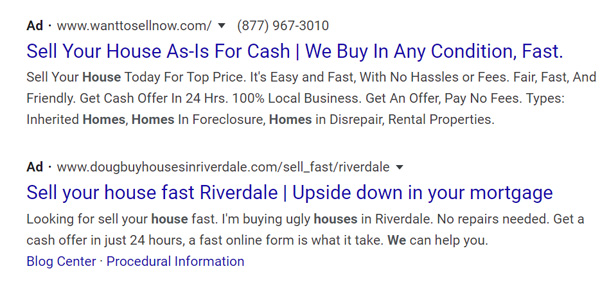
I know that these offers are generic and used by most investors, but the idea is to figure out what makes you different. Some sellers like to work with a local investor rather than a national-level company. This can also be your USP.
Step#6: Write effective ad copies for each ad group
Depending on your campaign structure strategy, you should write highly targeted ad copies for each of your ad group.
For example, you may consider creating an ad group exclusively for homeowners looking to sell without a Realtor and a different ad group for those who want to sell for cash.

The keywords should be relevant to the corresponding ad group. It will improve the quality score of your ads which plays an important role in determining your cost-per-click (CPC). You will also get a better conversion rate.
Another important thing to keep in mind is that the USP should reflect in the ad copy prominently.
Most real estate investors struggle to write effective copies. A simple way to get ad copy ideas for Google PPC is to look at how your competitors are writing their ads.
Some PPC tools such as SEMRush lets you spy on the ad copies of your competitors. Alternatively, you can use search queries such as ‘we buy homes fast’ or ‘how to sell a home without a realtor’.
Nine times of out of ten, top results will be Google ads by other real estate investors. You can take a look at headline, description, and offers being promoted by your competitors and get great ideas for your own ad copies.
Step#7: Use appropriate ad extensions and CTAs
Sitelink and other ad extensions are one of the most important elements. Depending on your quality score, Google may display these sitelink extensions, giving your ad more space in search engine results. It boosts click-through-rate (CTR) and decreases CPC.
Following are some of the most popular ad extensions:
- Sitelink extensions
- Location extensions
- Call extensions
- Callout extensions
- Structured snippet extensions

You should use as many ad extensions as possible. For example, call extensions can be used for displaying phone numbers in an ad. People can call you without even visiting your website by clicking the call extension link.
Step#8: Optimize your ad funnel
Your conversion rate will greatly suffer if you don’t have a conversion-optimized ad funnel. A landing page is the most important element in your ad funnel as this is the place on your website where users are directed to after clicking your ad.
The landing page is where your prospects share their details including phone number and email ID by filing out a form.
Your landing page should be relevant to the keywords and ad copy you are using for your PPC ad. It should have a clear and very focused Call-to-Action (CTA). Needless to say, it shouldn’t confuse your visitors with an offer that is different from what you are advertising.

You may need to set up different landing pages for different ads groups depending on the audience you are targeting, your offer and the action you want the users to take.
For example, the landing page for an ad group that targets seller would obviously be different from the one for an ad group that targets buyers.
The landing page experience plays an important role in determining the quality score of your ad. Google will see whether or not your landing page is relevant and determine the quality score. As already mentioned, a good quality score will lower cost-per-click (CPC) and cost-per-acquisition (CPA) and improve conversion rate.
Step#9: Set up conversion tracking
Conversion tracking helps you track different types of conversion actions. You can set up conversion tracking for your website, mobile app or phone calls.
It’s extremely important that you set up conversion tracking before starting to run you ads.
For example, if you are promoting a landing page on your website, you need to place a piece of code to see how many people who see your ads are filling out the form.
![]()
Step#10: Add negative keywords
The biggest mistake most real estate investors make when running Google PPC ad campaigns is this: They don’t use negative keywords.
Negative keywords are your best friends if you want to avoid wasting money on this platform.
Here is an example:
Let’s say you are using a Broad Match keyword – ‘sell my home fast’. I have seen that Google may show your ads for synonyms or related searches. You may get clicks for search queries related to ‘homes for sale’. This search query is most likely used by home buyers, not your target audience who are home sellers.
If you don’t mark ‘home for sale’ as negative keyword, you will keep getting clicks for this type of search queries. You will end up wasting a lot of money.
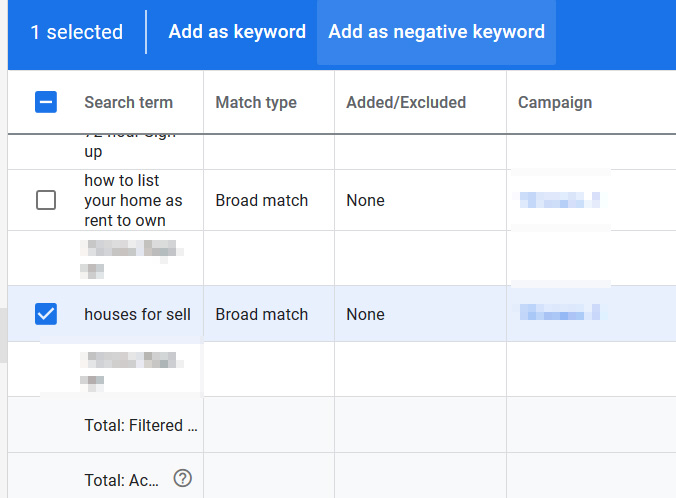
According to Google, a negative keyword is a type of keyword that prevents your ad from being triggered by a certain word or phrase. Your ads aren’t shown to anyone who is searching for that phrase. This is also known as a negative match.
To find which negative keywords to add, go to Search Terms under Keywords tab on the left side of the AdWords dashboard. Go through all the search queries that are triggering clicks. Select the search queries which are triggering irrelevant clicks and mark them as negative keywords.
We have managed a lot of AdWords accounts for real estate investors, so we are able to add hundreds of negative keywords from the get-go. You too will be to do so as you gain more experience with the platform.
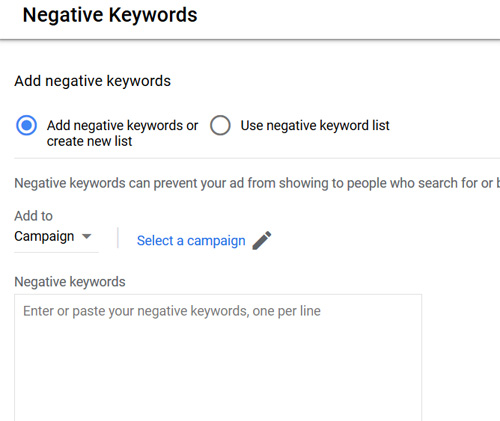
Step#11: Ongoing PPC management for real estate investors
Once you’ve run the ads for a while, you will start getting a lot of data about conversion rate, CPC, ROAS (Revenue on Ad Spend), conversion cost etc.
Here are a few ways you can use this data:
- Optimize ad performance: This data can help you optimize your ads. For example, you can adjust your Max CPC with the bid adjustment feature if you feel that a certain ad group or keywords is driving irrelevant clicks or poor conversion rate. You can double down on keywords and ad groups providing the best conversion rates. You can increase your bid amount for these keywords and ad groups.
- Find new keyword ideas: Google will auto-suggest keywords after looking at the keywords which are driving conversions. You will also stumble upon great keywords by going through the ‘search terms’ report.
- Improve quality score: Your bid doesn’t always determine the position of your ad and its performance. It means the highest bid doesn’t guarantee the top position. The quality score also plays an important role. You can act on quality score recommendations from Google and get more clicks and better conversion rate by spending less.
- Scale your ad campaigns and get more leads: Your campaigns may not be profitable in the beginning. But as you keep optimizing the performance of your ads based on the historic data, you will start getting better results. This will enable you to spend more money with confidence and get more leads.
Final thoughts
A better control over audience targeting and ad spend make Google Ads a great advertising platform for real estate investors.
It may take you a while to get yourself familiarize with platform and learn to do the calculations about various metrics, but the learning curve is absolutely worth it. Even if you hire a real estate PPC management agency or expert, you will be able to know what exactly they are doing.
In most markets, real estate investing offers relatively higher profit margins in the short term as well as long term. It gives you plenty of leeway. You can experiment, learn from your mistakes and eventually run profitable PPC campaigns.
Here at Realty Crux, we have worked with real estate investors and helped them scale up their business with Google Ads. Check out our affordable PPC management services.
If you’ve any questions or feedback, let me know in comments:

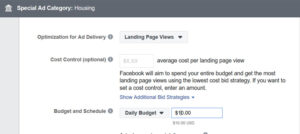

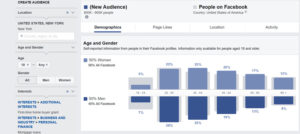
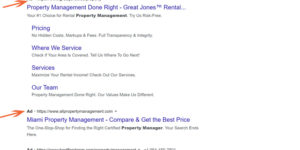
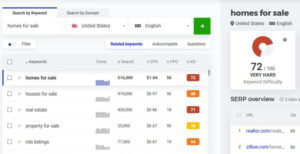
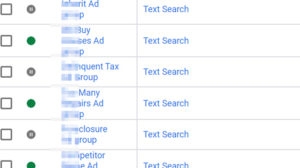
Leave a Reply